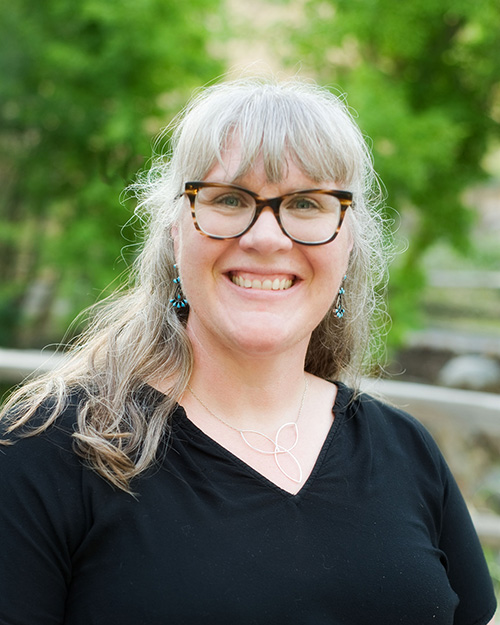New Degrees and Certificates offered in the College of Humanities
The Department of History and the Department of Linguistics in the College of Humanities at the University of Utah are excited to offer two new Bachelor of Science (B.S.) degree programs starting fall 2024. These new programs are designed to complement the existing Bachelor of Arts (B.A.) offerings in the same fields, providing students with an alternative path that emphasizes data-driven research, quantitative analysis, and practical applications of these disciplines. Also engaged in bridging science and humanities is the new Environmental Humanities and Transformative Justice undergraduate certificate which provides an interdisciplinary and justice-oriented focus to environmental issues.
 In Linguistics, the scientific study of language, interest in Computational Linguistics
has been steadily rising. In 2020, the Department of Linguistics made its first Computational
Linguistics hire. Now in 2024, there are three Computational Linguists as faculty
in the department. Linguistics has long been seen as a field of study combining scientific
and humanistic inquiry and this new bachelor’s degree option will help students in
ever changing career markets. As Aaron Kaplan, professor of Linguistics, notes,
In Linguistics, the scientific study of language, interest in Computational Linguistics
has been steadily rising. In 2020, the Department of Linguistics made its first Computational
Linguistics hire. Now in 2024, there are three Computational Linguists as faculty
in the department. Linguistics has long been seen as a field of study combining scientific
and humanistic inquiry and this new bachelor’s degree option will help students in
ever changing career markets. As Aaron Kaplan, professor of Linguistics, notes,
“The B.S. degree is a reflection of the Linguistics Department's growth in areas, such as computational linguistics, that often lead to science-oriented careers. It creates flexibility and accessibility for students interested in pairing their linguistics degree with a double major in another scientific field.”
The course requirements for the B.A. and the B.S. in Linguistics are the same for both degree options. The core courses in Linguistics are scientific in nature and give students the background for either a B.A. or B.S. option. The elective courses in linguistics are chosen based on student interest and future goals and can foster expertise in multiple areas from appreciation and depth in a chosen language needed for teaching, translating, and communicative roles, to broadening scientific training in linguistics courses that complement studies in fields such as Communication and Speech disorders, biology and computer science.
Click here to view all Linguistics degree information.
The new Bachelor of Science degree in History will include the mandatory seminars and History 1700 that are required in a Bachelor of Arts Degree but will also require students to take one of three Humanities courses: Programming for Humanities, Introduction to Digital Cultural Studies, or Introduction to Medical Humanities. Additionally, two of the upper division History electives that a student can choose from will be in the area of science, technology, environment, medicine, digital, or quantitative courses. The other courses will remain as students’ choice for their addition History electives. This will allow students to choose courses that build on their interests and also give them a background necessary for data-driven careers.
Click here to view all History degree information.
Both the History and Linguistics departments are committed to language learning as a tool for their disciplines and for helping students gain broader perspectives; the addition of a B.S. degree does not change how they value language but does offer more flexibility for students who might want this option for a variety of reasons. Each of these departments has had long standing quantitative methods as part of their discipline and this new degree pathway for a Bachelor of Science degree will help attract students who are likewise interested in data as a tool for explaining phenomena.
 The Environmental Humanities and Transformative Justice Certificate at the University
of Utah addresses students' concerns about environmental and social justice issues,
including sustainability and climate change. This interdisciplinary program equips
students with leadership, communication, and advocacy skills to tackle complex challenges.
Emphasizing practical application, students develop collaboration, critical thinking,
and problem-solving abilities while working in community settings. Danielle Endres,
professor of Communication and Director of the Environmental Humanities program, says,
The Environmental Humanities and Transformative Justice Certificate at the University
of Utah addresses students' concerns about environmental and social justice issues,
including sustainability and climate change. This interdisciplinary program equips
students with leadership, communication, and advocacy skills to tackle complex challenges.
Emphasizing practical application, students develop collaboration, critical thinking,
and problem-solving abilities while working in community settings. Danielle Endres,
professor of Communication and Director of the Environmental Humanities program, says,
“This certificate is ideal for students who are interested in the intersections between environmental and social transformation. More specifically, this certificate is designed to support students who are or want to be leaders in environmental and social change toward more equitable environmental futures.”
The certificate prepares them for careers in numerous fields and fosters engagement in environmental and social advocacy and activism. The certificate can be added to a student’s current program of study to enhance their learning and add skills to bolster their future career goals.
Click here for Environmental Humanities and Transformative Justice certificate information.
The ability to resolve conflict is a highly-valued professional asset, a means to foster community and personal relationships, and a life skill that promotes a more peaceful and productive way of living. The Dialogue, Conflict Resloution, and Meditation certiciate in Communication department equips students to do just that.
Students earning the Interdisciplinary Certificate in Dialogue, Conflict Resolution, and Mediation gain practical skills in understanding the roots of conflict and how to facilitate conflict resolution. This certificate provides students with skills that can resolve differences in the workplace, in the community, with friends and family, and beyond. The certificate is 21 credits and designed to appeal to students from a variety of majors and colleges throughout the university.
Click here for Dialogue, Conflict Resolution, and Mediation certificate information. Please direct any questions to comm-advisor@utah.edu.
